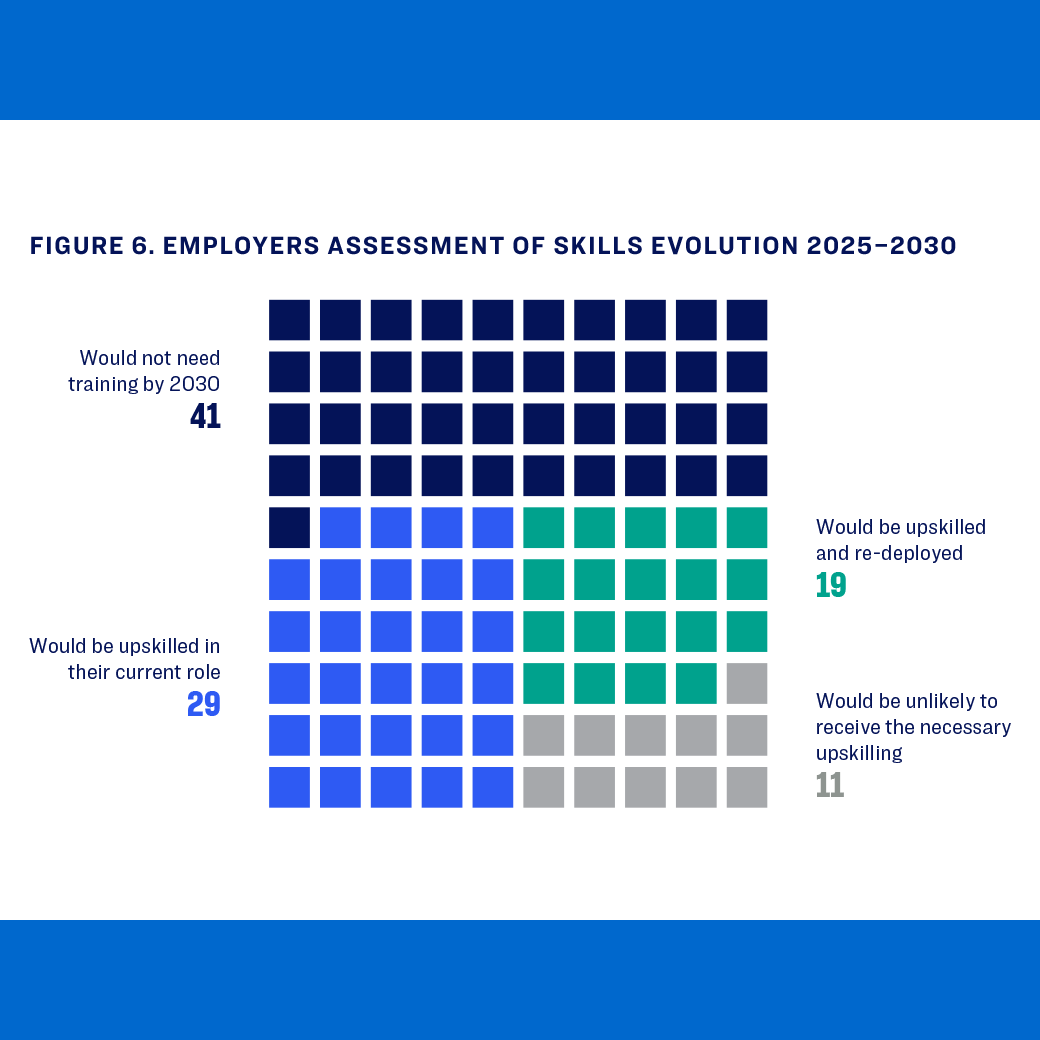Artificial intelligence is reshaping work at an unprecedented pace, creating opportunities and challenges across all industries. Unlike previous technological shifts that primarily affected blue-collar roles, AI is transforming knowledge-based and cognitive tasks. This analysis examines how organizations can navigate AI transformation through strategic, human-centered approaches that prioritize augmentation over replacement.
Summary
This report examines artificial intelligence's transformative impact on the global workforce through a human-centered lens. The study draws from leading research institutions and consulting firms to explore how organizations can navigate AI adoption while prioritizing human well-being and continuous learning. The analysis focuses on practical strategies for workforce development, skills evolution, and organizational change management that enhance human capabilities rather than simply replacing them.
Key Insights
- Unprecedented scope of workplace transformation - Unlike previous automation waves, AI targets cognitive and non-routine tasks across middle- to higher-paid professions, fundamentally altering how knowledge work is performed across industries.
- Critical skills gap demands immediate attention - While 59% of the workforce will require skill changes by 2030, nearly half of employees report inadequate AI training support. Analytical thinking emerges as the most essential core skill, with 70% of employers considering it critical.
- Human-centered approaches drive optimal outcomes - Research reveals workers prefer collaborative AI relationships over replacement scenarios. Organizations that involve employees in AI design and implementation see more successful adoption and better workplace outcomes.
- Strategic change management essential for success - Effective AI integration requires transparent communication, phased training programs, robust governance frameworks, and inclusive strategies that address diverse workforce demographics and multigenerational needs.



